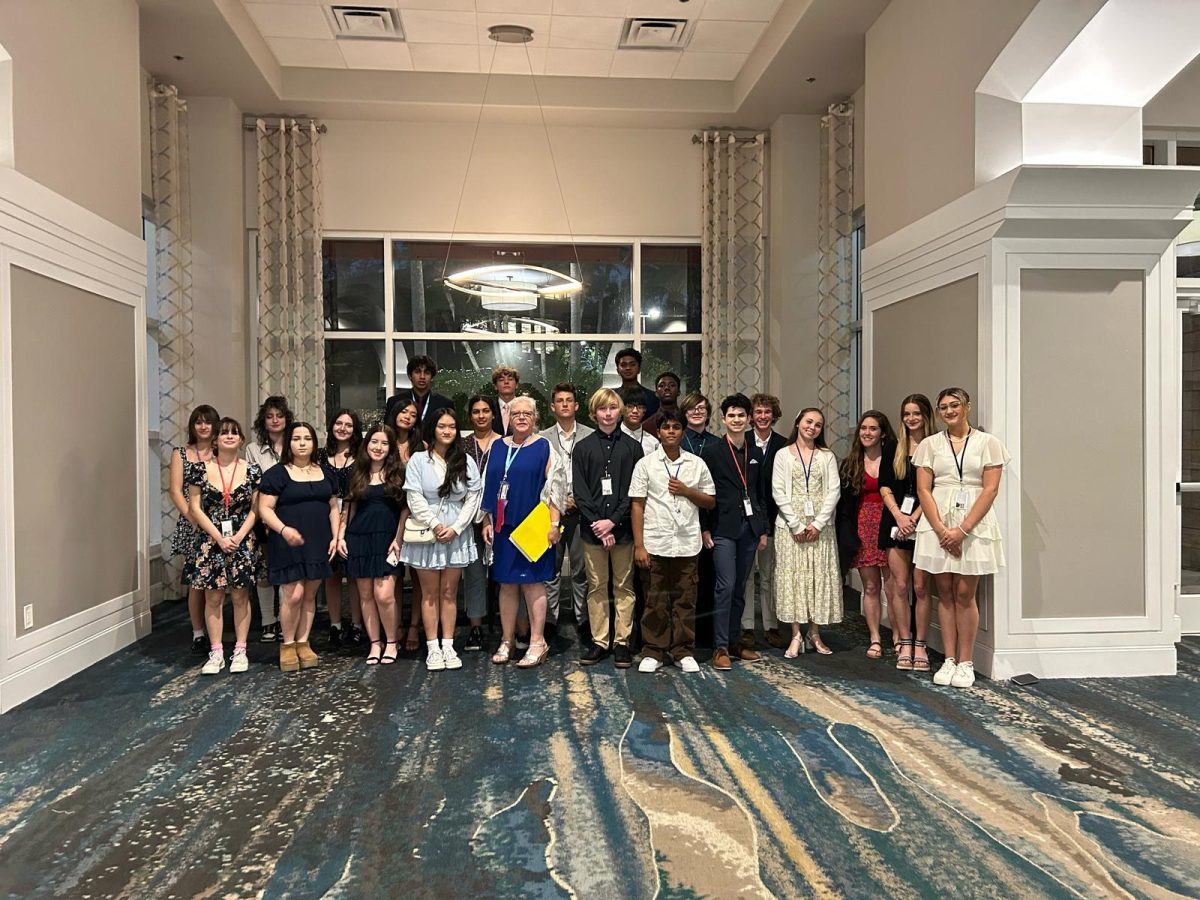Ableism in schools must be stopped
The school system must do more for their neurodivergent students
May 12, 2021
The American School system, both public and private, is built on an ableist structure that needs to be torn down. Ableism shapes the policies and practices within our schools, creating unfair disadvantages to students. From the seclusion of disabled students to the notion that everyone’s mind has to work the same way being taught to both staff and students, we need to work to dismantle the systematic ableism present in our school system. I will only speak my opinion on the issues that affect/have affected me personally.
Most schools do the bare minimum to help disabled students–they put in elevators for students who can’t use stairs, add braille to our classroom signs and create environments for disabled students to work in, such as Special Ed classrooms. But not all disabilities are skin deep.
According to the Oxford Dictionary, the term “neurodivergent” refers to someone with “differing mental or neurological function from what is considered typical or normal (frequently used concerning autistic spectrum disorders); not neurotypical.” Neurodiversity is a term used to describe variations in the human brain regarding mental functions such as sociability, learning, mood and attention.
The American School system fails to account for neurodivergent students, and many of the teachers participate in this ableism without realizing it.
In many schools, and by many parents and teachers, deaf students are not taught Sign Language and are instead forced to read lips. Parents put their children through physical therapy to force them to learn to walk. Neurodivergent students are forced to sit still in their chairs without stimming. In whatever form it appears, ableism shows up in all our classrooms.
Growing up, I was forced to sit and be quiet in my classes. I was snapped at when I “wasn’t paying attention.” I was scolded for drawing on my notes because they helped me focus. As I grew older, teachers praised me, commenting “delight to have in class” on all my report cards because I was the quiet student that did what they were told and kept my work area clean.
Yet points were marked off when I didn’t raise my hand in class when I didn’t participate in discussions. Teachers told me to “suck it up” when I asked to be excused from presenting in front of the class because my anxiety made me feel like I was drowning. For years, I kept my neurodiversity a secret, even from myself. I was a compliant student who always did her work.
It wasn’t until quarantine hit and the routine I had been following for years had been disrupted. I was forced to participate in school differently, that I started questioning whether I was neurotypical or not. I learned that I could not focus outside of a classroom setting because that is where I had been disciplined to learn. I had no motivation to complete a page of work If I didn’t have a group of students surrounding me, also doing their work. I learned that I wasn’t lazy or a procrastinator but that I was so severely mentally ill that I couldn’t bring myself to do work for weeks at a time.
But it wasn’t just during quarantine and eLearning that this occurred. Throughout the entirety of my senior year, I struggled with waves of stagnation, where I got no work done for school or personal reasons, and then suddenly the tide would drawback, and I’d do all of the work that I’d missed in a day. I’d go steady for a few weeks, coming to school on time and turning everything in with my best work until the tide came in again, drowning out all motivation.
And that’s what teachers, and other students, don’t understand. It’s not that I’m lazy and don’t feel like doing work. It’s like there’s something heavy on my chest, weighing me down and keeping me from doing anything.
Get up. I tell myself. You have homework. You’re going to fail if you don’t turn this in. You know your teacher doesn’t accept late work.
No matter how hard I try to get up, I can’t. Just because you can’t see or feel the obstacle doesn’t mean it’s not there; it doesn’t mean it’s not real.
That’s why it’s important to dismantle systemic ableism in our schools. Teachers, be understanding of your students. Know that your teaching style and the way you utilize your classroom will not work for everybody. Accept late work without penalty, let students stim in your classrooms, be understanding of mental disorders and illnesses. Work for your students to give them a better working environment to allow them to get the grades they’re capable of. Ask your neurodivergent students what you can do to allow for a better working environment; build on their individual strengths.









